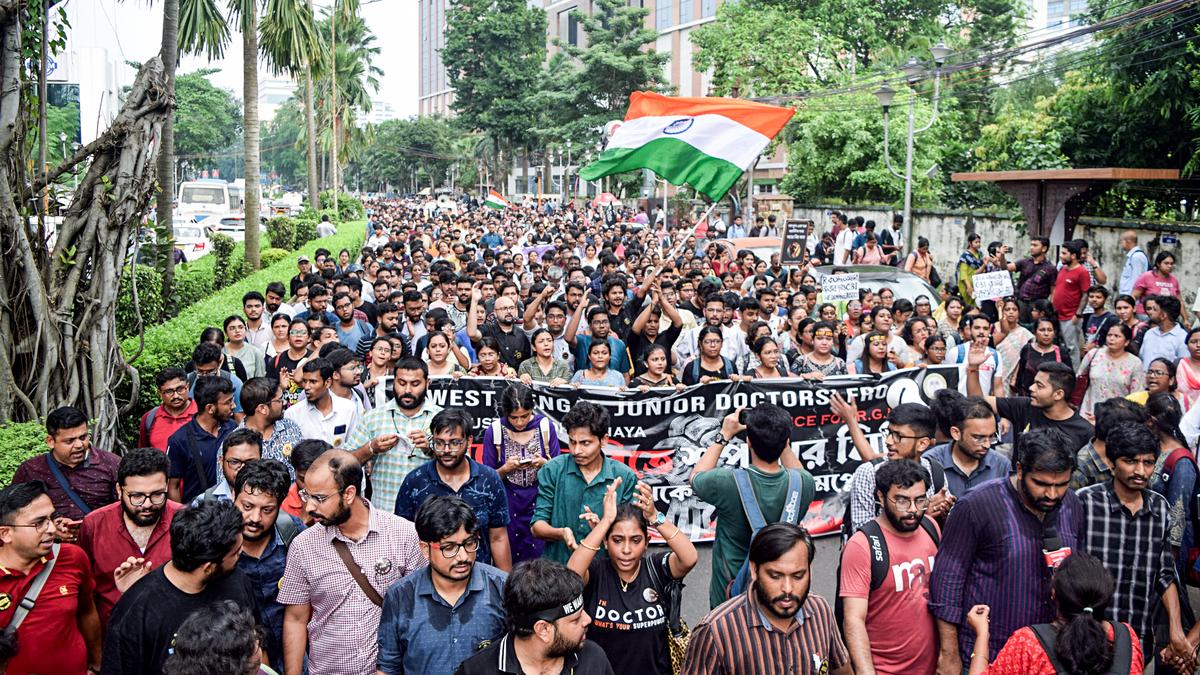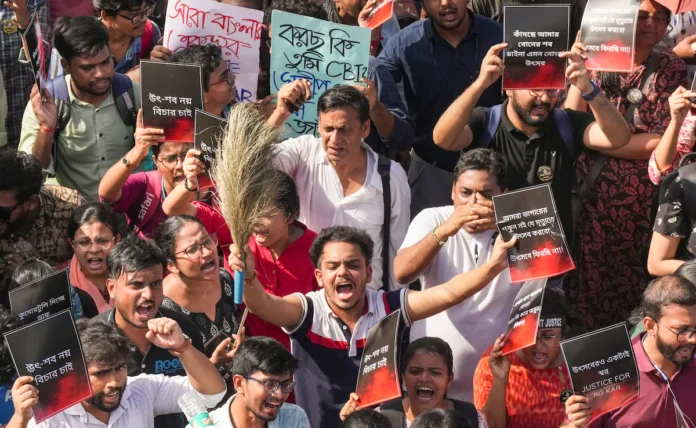West Bengal Doctors Threaten Total Cease Work: Will Healthcare in the State Collapse if Demands Are Ignored?
Healthcare services in West Bengal are on the brink of a major crisis as doctors across the state have warned of a total cease work if their demands are not met. This ultimatum has raised significant concerns about the future of healthcare in the region and whether the state government will take the necessary steps to prevent a complete shutdown of medical services.
The situation comes after months of negotiations and partial strikes by healthcare professionals, who have been raising their voices for better working conditions, salary revisions, and improved infrastructure in government hospitals. However, the stalemate between the doctors and the state government seems to be reaching a boiling point. The West Bengal doctors have now given a final warning: either meet our demands, or we will stop working entirely.
But what led to this drastic step? And what could happen if their demands continue to go unmet?
Why Are Doctors in West Bengal Demanding Change?
The grievances of the medical community in West Bengal are not new. Over the years, doctors, especially those working in government-run hospitals, have voiced their concerns about the deteriorating state of healthcare infrastructure and working conditions. Some of the key demands include:
- Salary Revisions: Many doctors, particularly junior doctors and resident doctors have been demanding an increase in their salaries, which they believe are not in line with the growing cost of living and their heavy workload.
- Better Working Conditions: Doctors complain of overcrowded hospitals, outdated medical equipment, and a lack of basic facilities. These issues not only make their jobs more difficult but also compromise the quality of patient care.
- Security: A significant demand from the doctors has been the need for increased security in hospitals. There have been numerous incidents where doctors have been assaulted by patients’ families, leading to an unsafe working environment.
- Workload and Staff Shortages: The shortage of healthcare staff in government hospitals means that doctors are often overburdened, working long hours without adequate support. This not only affects their well-being but also puts patients at risk due to fatigue-induced errors.
Escalating Tensions: Partial Strikes and Protests
Over the past few months, doctors in West Bengal have resorted to partial strikes and protests to draw attention to their demands. While emergency services have continued to operate during these protests, many outpatient departments (OPDs) and elective surgeries were halted, causing inconvenience to thousands of patients.
The state government has held several rounds of discussions with representatives of the doctors’ unions, but no concrete solution has been reached. This has led to growing frustration among healthcare professionals, who feel that their voices are not being heard.
Despite these partial strikes, the doctors ensured that life-saving services were not disrupted. However, with no progress in sight, the doctors are now threatening a total cease work, which could lead to a complete collapse of the healthcare system in the state.
What Could Happen If Doctors Stop Working?

If doctors in West Bengal go ahead with their threat of a total cease work, the consequences could be devastating for the state’s healthcare system. Here’s what could happen:
1. Collapse of Public Healthcare Services
With government hospitals serving a vast majority of the population in West Bengal, a complete strike would leave thousands of patients without access to essential healthcare services. OPDs, surgeries, and emergency care could all be halted, leading to a healthcare disaster.
2. Increased Burden on Private Hospitals
While private hospitals might continue to function, they would likely be overwhelmed by the sudden surge in patients. This could lead to increased waiting times, overcrowded facilities, and higher costs, making it difficult for the general population, especially those from economically weaker sections, to access healthcare.
3. Risk to Critical Patients
Patients who require immediate medical attention, such as those in need of emergency surgeries or intensive care, would be the hardest hit. A lack of medical personnel in government hospitals could lead to unnecessary loss of life, putting immense pressure on the government to act swiftly.
4. Escalating Public Outrage
The general public, already burdened by rising healthcare costs, would likely express their outrage through protests and public demonstrations, further straining the state’s resources. The situation could spiral out of control if the government does not intervene with a timely solution.
The Government’s Response: Will They Meet the Demands?
The West Bengal government is now at a critical juncture. While they have acknowledged some of the doctors’ demands, they argue that meeting all of them immediately would be financially challenging. The state’s health minister has urged the doctors to remain patient and continue dialogue.
However, time is running out, and the doctors have made it clear that they will not wait indefinitely. With the clock ticking, the government must either come up with a satisfactory solution or face the risk of a complete healthcare shutdown.
Some reports suggest that the government is considering incremental reforms to address the doctors’ concerns, including increasing security measures in hospitals and addressing the staff shortage. However, it remains to be seen whether these steps will be enough to prevent the looming strike.
Public Reaction: Mixed Opinions
The public reaction to the doctors’ demands has been mixed. While many sympathize with the plight of the healthcare professionals, particularly in relation to low wages and long hours, others argue that a complete strike would be irresponsible and dangerous, especially for patients who rely on public hospitals for affordable care.
The people of West Bengal are now watching closely to see if the government will act in time to avoid a healthcare crisis.
Conclusion: Will West Bengal’s Healthcare Survive This Crisis?
The threat of a total cease work by doctors in West Bengal has brought the state’s healthcare system to the edge of a precipice. The government’s next move will be crucial in determining whether a healthcare catastrophe can be avoided or whether the people of West Bengal will be left without access to essential medical services.
With both sides standing firm, the outcome of this standoff could have far-reaching consequences for the future of healthcare in the state. The question remains: Will the West Bengal government step up and meet the doctors’ demands, or will the state’s healthcare system collapse under the weight of inaction?

